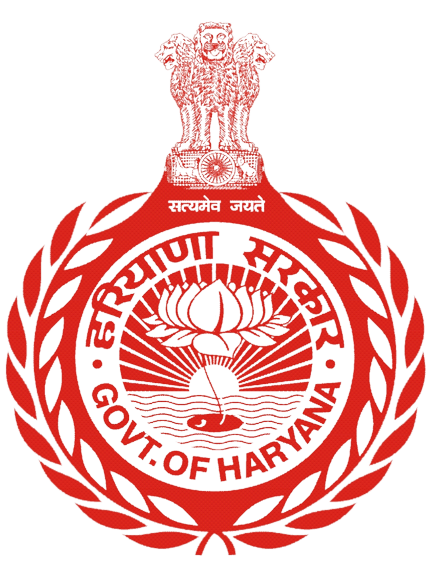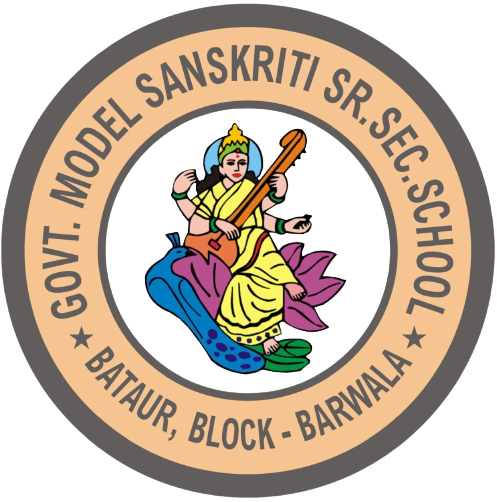 Govt. Model Sanskriti Sr. Sec. School, Bataur
Govt. Model Sanskriti Sr. Sec. School, Bataur
 Govt. Model Sanskriti Sr. Sec. School, Bataur
Govt. Model Sanskriti Sr. Sec. School, Bataur

Library
The library occupies a very important place in school. With its books suited to the interests and aptitude of students of different age group, with its magazines, periodicals, news papers and with its calm and tranquil atmosphere it has a special call to the students who go there and quench their thirst for reading the material which cannot be provided to them in the class room. Here they find an environment which is conductive to the building up of habit of self learning. The library is the center of the intellectual and social activities of school. The library has got very wholesome effect over the work of school.
Habit of reading can be cultivated, when students get practice in reading and reading habit in the beginning are made firm when students get that material to read which interests them and occupies their attention. In the class room the books that are prescribed may not serve the purpose, some students may not be in a position to purchase all books that they want to read, while others may not find books that are of interest to them.
Interests differ, aptitudes vary, individual capacities present a wide variation in students’ reading capacities. In the library each has what he wants, each goes at the speed to which his capabilities allow him to go. The library is thus, a common platform upon which all students meet on a common level with equal opportunities. It is the nucleus of the school environment, the center of the intellectual activities of the school.
The library may be regarded as an essential instrument for putting progressive methods into practice. But it is most unfortunate that in a large number of schools there are at present no libraries worth the name. The books are usually old, out-dated, unsuitable, usually selected without reference to the students’ tastes and interests.
They are stocked in a few book shelves, which are housed in an inadequate and unattractive room. The person in charge of the library is often a clerk or an indifferent teacher, who does the work on a part-time basis and has neither love for books nor knowledge of library technique. What makes this situation particularly difficult is the fact that most teachers and headmasters and even the educational administrators and authorities do not realize how unsatisfactory this position is and, therefore, hey have no sense to take necessary steps for improving the condition.
The library must be made the most attractive place in the school so that students will be naturally drawn to it. It should be housed in a spacious well lighted hall. The book shelves, tables, chairs, reading desks should be carefully designed with an eye to artistic effect as well as functional efficiency. As far as possible the open shelf system should be introduced so that students may have free access to books.
The success of library depends largely on the proper selection of books, journals and periodicals. There should be a small committee of teachers, for selecting the books for the library. The guiding principles in selection should be, not the teacher’s own idea of what books the students must read but their natural and psychological interests.
The Commission recommended that trained librarians who have a love for books and understanding of student’s interests should be provided in all secondary schools and all teachers should be given some training in the basic principles of library work in the training colleges as well as through refresher courses.
As the proper use of well equipped school library is absolutely essential for the official working of every educational institution and for encouraging literary and cultural interests in students, every secondary school should have such a library. Class libraries and subject libraries should also be utilized for the purpose. The subject teachers should be in charge of subject library. Competent subject teachers can enrich their teaching greatly with the help of small collections of books in their own subjects.
This should not be confined to text books only. Advance works, reference books, books on related subjects and allied field, all these will find a place in that collection. Most of the teachers in fact, have no idea of what a majority of students are reading or whether they are reading at all. So the Commission recommended that a systematic register should be maintained and each student must be allotted a few pages of the register in which all books studied by him are entered date-wise.
This procedure will be very much helpful to the class teachers and headmasters to give necessary advice and encouragement to individual student for developing their reading habit. On the other hand each student is expected to maintain a diary in which he may enter date-wise, the names of all the books (with the names of the Authors) which he has read together with brief quotation or extracts that may appeal to him.
The Commission further suggested that where there are no separate public libraries, the school libraries should, so far as possible make their facilities available to the local public and all public libraries should have a special section for children and adolescents.
Function of a School Library:
(i) It supplements class work by increasing students’ vocabulary, quickening their intelligence and extending their general knowledge;
(ii) It enables the students to prepare themselves for taking part in the various co-curricular activities of the school. They get information which is very helpful to them in taking part in debates, giving lectures and writing for the school magazine;
(iii) It develops habits of the students to derive pleasure and information from recreational and informative books;
(iv) It broadens their outlook by placing a vast sphere of information before them;
(v) It imparts training to the students for the proper use of books;
(vi) It gives students training in punctuality by impressing ‘ upon them the necessity of returning and borrowing books at a fixed time;
(vii) It provides suitable books to the students to satisfy their hunger of reading books and saves them from the harmful effects of reading unsuitable and injurious literature;
Govt. Model Sanskriti Sr. Sec. School Bataur , VILLAGE BATAUR, BLOCK BARWALA, DISTT. PANCHKULA PINCODE 134118
gsssbataur1@gmail.com
01733-256010